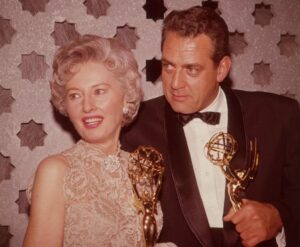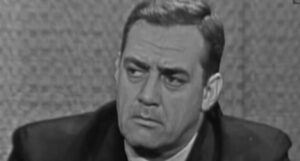
Raymond Burr, born on May 21, 1917, in New Westminster, Canada, rose to fame as a versatile actor in Hollywood. He starred in over 90 productions, with notable roles in Rear Window, A Cry in the Night, and most famously as Perry Mason in the eponymous TV series. Though celebrated for his acting, Burr led a secret life, keeping his homosexuality hidden due to fears that revealing it would damage his career during an era of widespread discrimination.
Burr’s early life was marked by hardship, with his parents divorcing when he was young, and he took various jobs during the Great Depression to support his family. He found his passion for acting in high school and later honed his skills in theater, eventually breaking into film in the 1940s. Known for playing antagonistic roles, he gained recognition in films such as A Place in the Sun and Rear Window. By the mid-1950s, Burr’s career soared with the role of Perry Mason, which earned him multiple Emmy Awards and became a cultural touchstone.
Despite his public success, Burr maintained a carefully constructed persona, fabricating stories about a tragic personal life to shield his true identity. He claimed to have been married multiple times and lost a son to leukemia, but these stories were later proven to be false. Burr’s real partner was Robert Benevides, whom he met through a connection in Hollywood’s secret gay social circles. Burr’s relationship with Benevides lasted 33 years, but he never publicly acknowledged it during his life.
Burr’s secrecy extended to his personal relationships, and he went to great lengths to maintain a facade, even as he helped children around the world. He “adopted” 25 children, providing them with financial support and visiting them regularly. Burr’s life remained shrouded in mystery until after his death in 1993 from kidney cancer. He left his estate to Benevides, and his secrets were later revealed through the biography Hiding in Plain Sight: The Secret Life of Raymond Burr by Michael Starr.
Burr’s career and personal struggles reflect the pressures of Hollywood’s social climate during his time, and his legacy as a talented actor and a pioneer for LGBTQ+ visibility remains significant. He was posthumously celebrated for his charitable acts and his role in advocating for others, despite his


